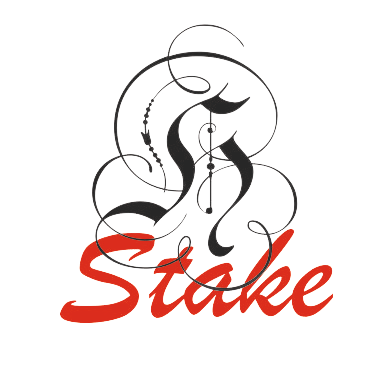Interviewing candidates for management roles is vital as these positions have a significant impact on team performance, organizational culture, and overall business success. Effective managers play a crucial role in guiding teams, making strategic decisions, and achieving organizational goals. Therefore, conducting a thorough interview is essential for identifying candidates who possess the necessary skills, experience, and leadership qualities required for these roles.
The primary objectives of asking the right interview questions are to assess a candidate’s suitability for the management position, understand their approach to leadership and management, and evaluate their problem-solving and strategic thinking abilities. Effective questions should reveal how well a candidate can handle complex situations, drive team success, and align with the organization’s values and goals. This approach helps ensure that the selected candidate is well-equipped to fulfil the responsibilities of the role.
I. Assessing Leadership Skills
To evaluate a candidate’s leadership skills, it’s important to understand their leadership style and philosophy. Asking “Can you describe your leadership style?” helps determine whether the candidate adopts an authoritative, democratic, or laissez-faire approach. This question provides insight into how they lead their team, make decisions, and foster a productive work environment. Furthermore, asking “How do you inspire and motivate your team?” reveals the candidate’s strategies for boosting team morale, maintaining high engagement, and encouraging peak performance. These responses highlight their ability to drive team success and manage diverse personalities effectively.
Another key aspect of leadership is conflict resolution. Requesting “Can you provide an example of a conflict you resolved between team members?” assesses the applicant’s capacity for handling conflict resolution, moderating conflicts, and coming up with compromises. This question is essential for understanding their approach to maintaining team harmony and addressing challenges. Similarly, “How do you handle disagreements with upper management?” assesses their ability to navigate conflicts with higher-level executives while maintaining professionalism and respect. This question helps gauge their skills in managing upwards and balancing differing perspectives within the organization.
Assessing a candidate’s strategic thinking ability involves understanding their approach to strategic planning and decision-making. To gauge their strategic planning skills, ask “How do you approach setting long-term goals for your team or department?” This question reveals the candidate’s method for developing future-oriented goals, aligning team objectives with broader organizational aims, and creating actionable plans. It provides insight into their ability to think ahead and plan effectively. Additionally, asking “Can you give an example of a successful strategy you implemented?” allows candidates to demonstrate their experience in executing strategies and achieving significant results. This concrete example showcases their ability to translate strategic plans into successful outcomes.

II. Evaluating Strategic Thinking
Decision-making is another critical aspect of strategic thinking. You can find out how applicants handle difficult decisions by asking them to “Describe a difficult decision you had to make and the process you used.”. This question evaluates their ability to analyze information, consider various options, and weigh potential outcomes. Another important consideration is how candidates balance short-term needs with long-term goals. By asking “How do you balance short-term needs with long-term goals?” assesses their skill in prioritizing immediate tasks while keeping a focus on overarching objectives. This question helps determine their effectiveness in managing resources and planning for sustained success.
III. Measuring Communication Skills
Effective communication is essential for maintaining team cohesion and productivity. To evaluate a candidate’s ability in this area, ask “How do you ensure effective communication within your team?” This question helps understand how the candidate promotes clear and open communication, facilitates information flow, and overcomes communication barriers. Their response reveals their approach to creating an environment where team members can easily exchange ideas and feedback.
Additionally, “Describe a time when you had to communicate a difficult message” examines the candidate’s ability to handle sensitive conversations with tact and professionalism. This question assesses how they manage challenging situations, such as delivering tough feedback or navigating delicate issues, ensuring that their approach maintains respect and clarity.
In terms of stakeholder management, it’s important to understand how candidates build and sustain relationships with key stakeholders. Asking “How do you manage relationships with key stakeholders?” assesses their ability to control expectations, engage in constructive dialogue, and maintain relationships with people or groups that have a stake in the organization’s success. also “Can you give an example of how you handled conflicting priorities from different stakeholders?” gives a glimpse into their capacity to manage conflicting interests, engage in successful negotiation, and assign duties according to the needs of different stakeholders. This helps gauge their competence in managing complex relationships and aligning multiple interests.
IV. Understanding Change Management
Change management is essential for organizations to adapt to evolving business environments. To evaluate a candidate’s ability to lead change initiatives, ask “Describe a major change initiative you led. How did you manage it? This inquires about their background in coordinating major changes, as well as the methods they’ve used to successfully organize, communicate, and carry out these changes. The candidate’s response will highlight their competence in managing transitions, overcoming obstacles, and ensuring successful outcomes.
Another key aspect of change management is addressing resistance to change. Asking “How do you deal with change resistance within your team?” helps assess the candidate’s approach to managing and mitigating resistance. This question explores their strategies for engaging team members, addressing concerns, and securing buy-in to facilitate smooth transitions.
Adaptability is also crucial in managing change. To understand how candidates stay current with industry developments, ask “How do you stay updated with industry changes and trends?” This inquiry assesses their dedication to lifelong learning as well as their strategies for staying up to date on changes and innovations in the industry.. Furthermore, the question “Give an example of a time when you had to adapt quickly to a major change” tests their capacity to modify plans or tactics in the event of unforeseen changes. This question helps gauge their flexibility and problem-solving skills in dynamic environments.
V. Evaluating Team Development
Assessing a candidate’s approach to team development involves understanding how they cultivate talent and manage performance. The question “How do you identify and nurture talent within your team?” enquires about the methods they use to spot and develop team members’ potential. This question reveals their methods for providing development opportunities, supporting career growth, and preparing team members for future roles within the organization. A strong approach to talent development is crucial for ensuring long-term team success and effective succession planning.
Furthermore, effective performance management is essential for team growth. Asking a candidate “What methods do you use for performance evaluations and feedback?” reveals how they go about evaluating their work, establishing objectives, and providing helpful criticism. This question highlights their ability to manage performance effectively, encourage skill improvement, and maintain high standards within their team.
Team building is another key aspect of team development. Asking the prospect “How do you foster a positive and productive team environment?” will help you determine how well-suited they are to lead a pleasant workplace. This question evaluates their methods for creating a cooperative, encouraging, and positive workplace culture. Additionally, asking “Describe a team-building activity or initiative you’ve led” provides insight into their experience with organizing activities that strengthen relationships and enhance teamwork. This question highlights their ability to promote team cohesion and improve overall group dynamics.

VI. Assessing Results Orientation
When assessing a candidate’s results orientation, it’s important to understand how they approach goal setting and tracking within their team. Asking the question “How do you establish and monitor team goals?” helps evaluate their process for aligning team efforts with organizational objectives, including how they monitor progress and adjust strategies as necessary. Additionally, by requesting a specific example of a goal they achieved and how they did it, you gain insight into their practical ability to set, pursue, and accomplish goals, showcasing their approach, the actions they took, and the outcomes they delivered.
Equally important is understanding how candidates measure success and handle challenges. Asking “What metrics or KPIs do you use to measure the success of your team?” explores their methods for defining, tracking, and evaluating team performance, providing a window into their effectiveness in assessing success. Furthermore, the question “How do you handle underperformance or missed targets?” explores their strategy for handling underperformance, outlining how they find problems, put remedial measures in place, and help team members reach their objectives—all of which are essential for keeping a high-performing team.
Conclusion
Asking targeted questions during management interviews is crucial for evaluating the various skills and qualities essential for the role, ensuring that candidates are well-suited to meet the organization’s needs. Customizing questions to align with the specific requirements of the management position and the company’s culture is vital. Customizing the interview process increases its relevance and improves its ability to find the best applicant for the position.





